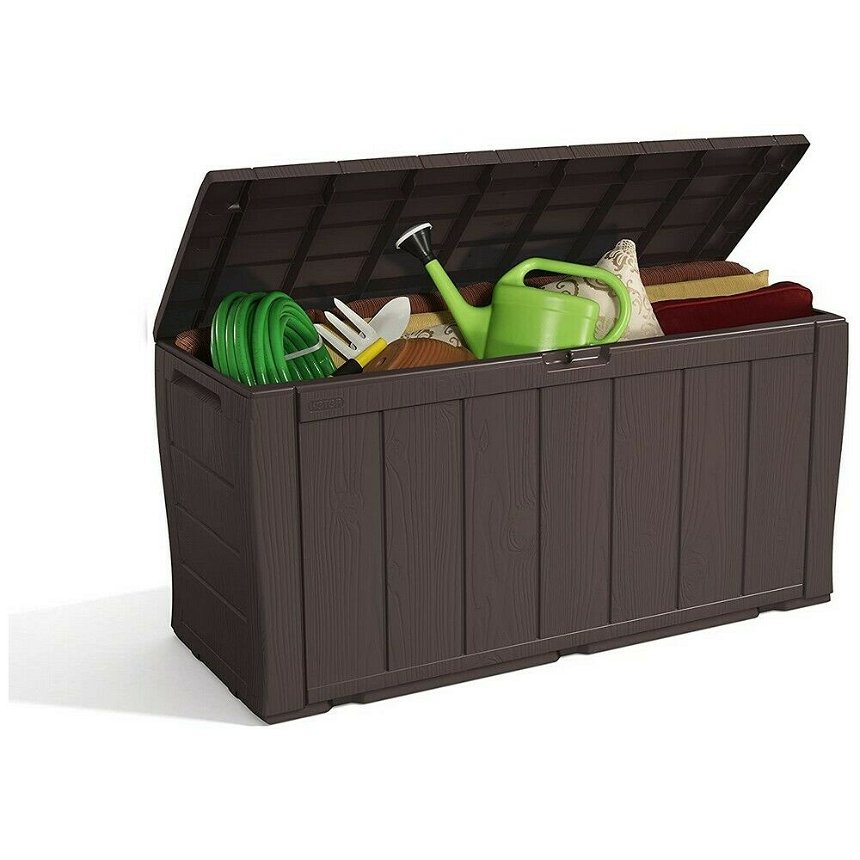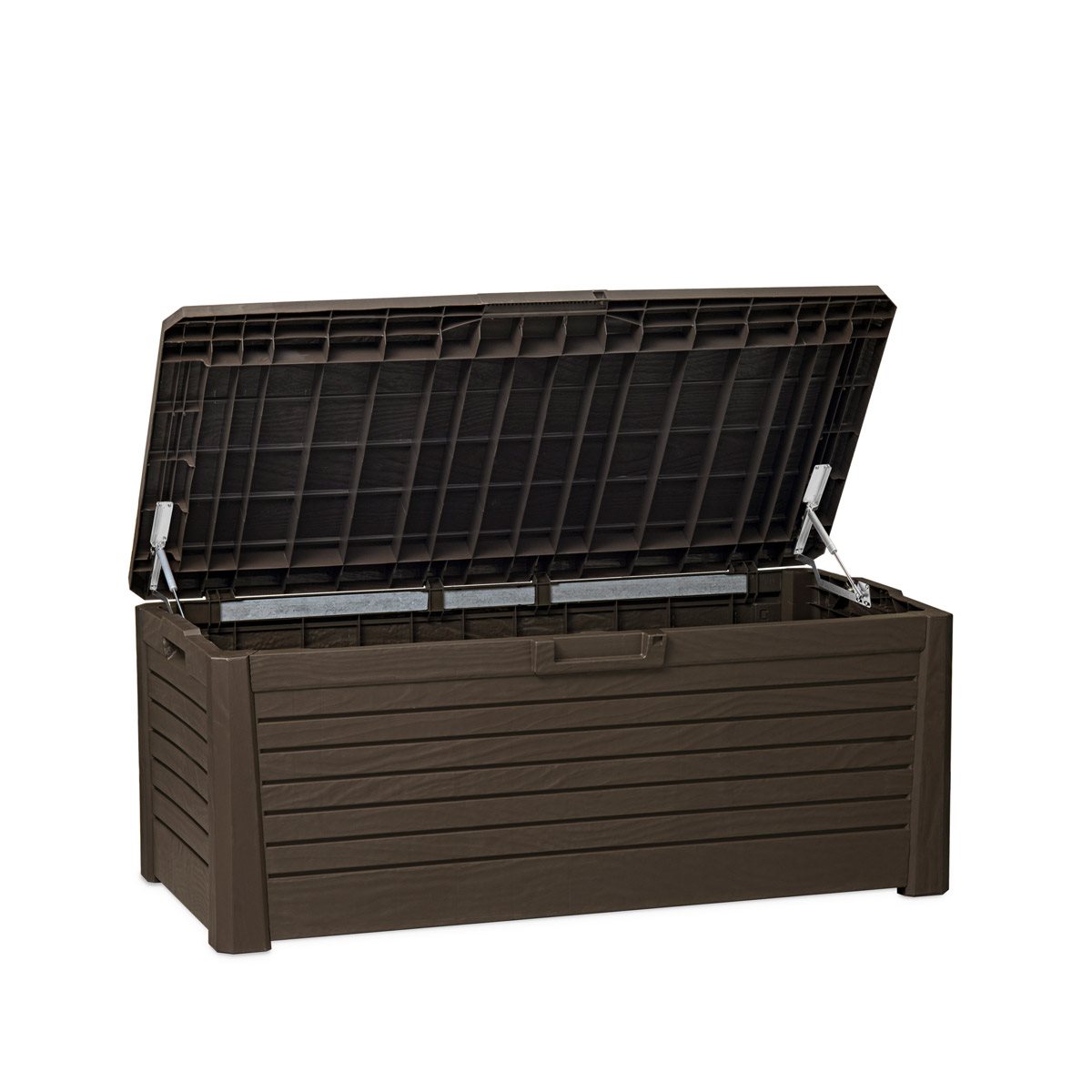
Toomax Baule da Esterni, plastica Imitazione Rattan, 420L capacità, Dim cm 120x56x63h (Antracite) : Amazon.it: Giardino e giardinaggio

Toomax Baule Woody's 90L, contenitore da esterni, Art. 173, dim. cm 42,5x44x50h, colore Antracite : Amazon.it: Giardino e giardinaggio

Toomax Baule Multibox Trend Line 320L, Dim. cm 119x46x60h, Resistente Raggi UV, Art. 160, Colore Nero : Amazon.it: Casa e cucina

Toomax Baule Stora Way da Esterni, portattrezzi in Polipropilene Riciclato con Effetto Legno 842L, Art.087, Antracite/Grigio Tortora : Amazon.it: Giardino e giardinaggio

Amazon.com : Toomax Foreverspring Chest with 2 Person Seat 270L, Wood Effect Plastic, Dim. cm 132,5x58x89, Art. 599, Anthracite : Patio, Lawn & Garden

Toomax Baule Portonovo da Giardino con Seduta e Cuscino, Coperchio con Pistoni. Finitura Legno e midollino. Dimensioni 123x54x59, 340L (Marrone) : Amazon.it: Giardino e giardinaggio

TOOMAX Baule Florida da esterni con seduta, imitazione legno, Art. 155, 550L - cm 148x72x60h, colore Antracite : Amazon.it: Giardino e giardinaggio

Toomax Baule Multibox Woody's 280L portattrezzi per Esterni, Effetto Legno, Dim. cm 117x45x56h, Art.164 (Marrone) : Amazon.it: Giardino e giardinaggio

Toomax Baule High Stora Way Storage Box Recycled Polypropylene with Wood Effect, 1670L, Art. 091, Taupe/Anthracite : Amazon.com.be: Tools & Home Improvement

Toomax Baule Multibox Wood da Esterni 420L, rifinitura Effetto Legno, Art. 163, Dim. cm 120x56x63h (Grigio Tortora) : Amazon.it: Giardino e giardinaggio

Toomax Baule Multibox Wood da Esterni 420L, rifinitura Effetto Legno, Art. 163, Dim. cm 120x56x63h (Grigio Tortora) : Amazon.it: Giardino e giardinaggio

Toomax Baule Multibox Woody's 280L portattrezzi per Esterni, Effetto Legno, Dim. cm 117x45x56h, Art.164 (Antracite) : Amazon.it: Giardino e giardinaggio

Toomax Baule Multibox Woody's 160L portattrezzi per Esterni, Effetto Legno, Dim. cm 77,5x44,5x52,7h, Art.186 (Grigio Tortora) (160L - cm 77,5 x 44,5 x 52,7 h, Antracite) : Amazon.it: Giardino e giardinaggio

Toomax Baule High Stora Way Storage Box Recycled Polypropylene with Wood Effect, 1670L, Art. 091, Taupe/Anthracite : Amazon.com.be: Tools & Home Improvement

Toomax Baule High Stora Way Storage Box Recycled Polypropylene with Wood Effect, 1670L, Art. 091, Taupe/Anthracite : Amazon.com.be: Tools & Home Improvement

TOOMAX Baule Florida da esterni con seduta, imitazione legno 550L, Art. 155, Grigio Tortora, cm 148x72x60h : Amazon.it: Giardino e giardinaggio

Toomax Baule Portonovo da Giardino con Seduta e Cuscino, Coperchio con Pistoni. Finitura Legno e midollino. Dimensioni 123x54x59, 340L (Marrone) : Amazon.it: Giardino e giardinaggio

Toomax Baule Multibox Woody's 280L portattrezzi per Esterni, Effetto Legno, Dim. cm 117x45x56h, Art.164 (Antracite) : Amazon.it: Giardino e giardinaggio

Toomax Baule High Stora Way Storage Box Recycled Polypropylene with Wood Effect, 1670L, Art. 091, Taupe/Anthracite : Amazon.com.be: Tools & Home Improvement






